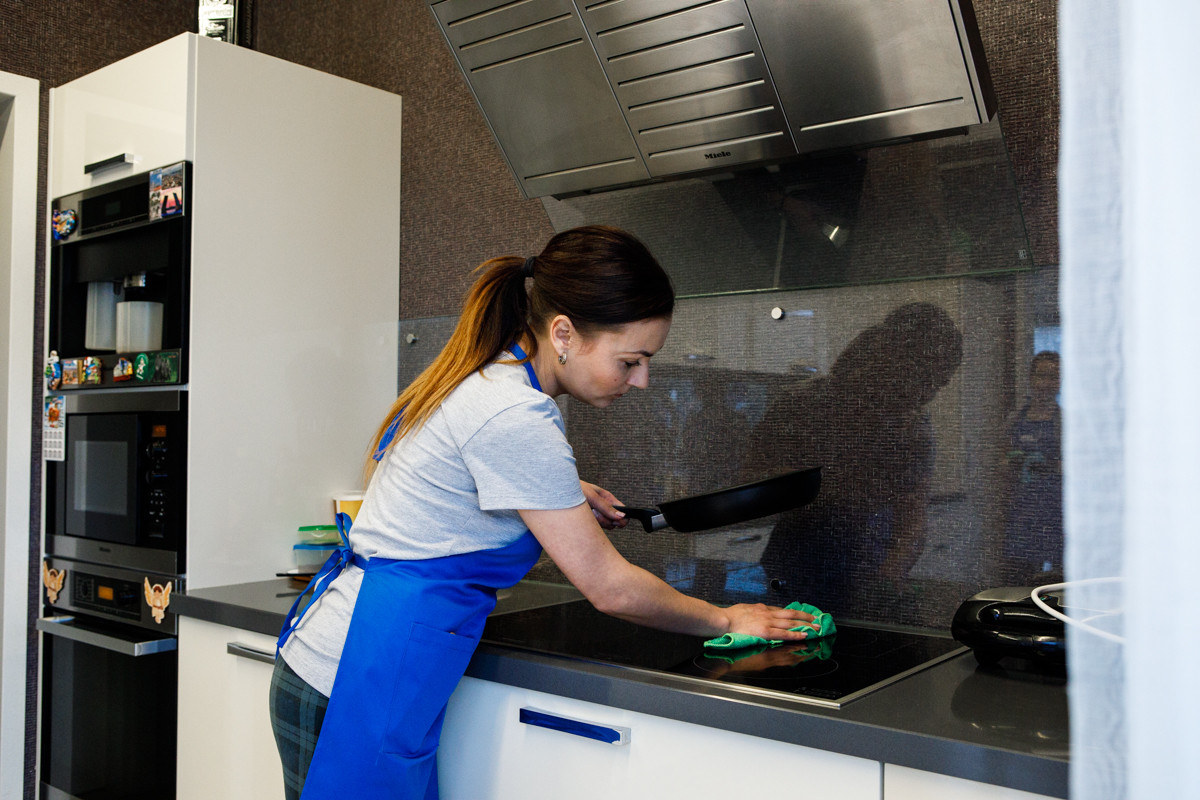How Cleaning and Organizing Boosts Mental Health
In our busy lives, maintaining a clean and organized living space often falls to the bottom of the priority list. However, there’s a growing body of evidence suggesting that the state of our environment significantly impacts our mental health. Engaging in cleaning and organizing activities can provide more than just a tidy home; it can also offer substantial benefits to our mental well-being. Here’s how cleaning and ordering your surroundings can lead to a healthier mind.
1. Reduction of Stress and Anxiety

A cluttered environment can lead to a cluttered mind. Studies have shown that physical clutter can overwhelm the brain, making it difficult to focus and process information. This sensory overload can contribute to stress and anxiety. In contrast, cleaning and organizing can have the opposite effect, helping to create a calm and peaceful environment. A study by the University of California, Los Angeles (UCLA) found that women who described their homes as cluttered had higher levels of the stress hormone cortisol than those who considered their homes more restful .
By reducing clutter, you’re not just tidying up your space; you’re also helping to lower your stress levels and create a more serene environment where you can relax and recharge.
2. Boosting Mood and Providing a Sense of Accomplishment
Cleaning and organizing can also lead to an immediate mood boost. The act of tidying up can be a form of physical activity, which is known to release endorphins—the body’s feel-good chemicals. This can help lift your mood and provide a sense of satisfaction. Additionally, completing a task like cleaning can give you a sense of accomplishment, boosting your self-esteem and giving you a feeling of control over your environment.
A study published in the journal Personality and Social Psychology Bulletin found that people who described their homes as messy or cluttered were more likely to feel depressed and fatigued than those who described their homes as restful and restorative . By taking steps to clean and organize your space, you can transform your environment into one that supports your mental health and well-being.
3. Enhanced Focus and Productivity
A tidy environment is not only less stressful, but it also enhances your ability to focus and be productive. Clutter can serve as a constant reminder of tasks left undone, which can be mentally exhausting and distracting. By clearing away unnecessary items and organizing your space, you remove these distractions, making it easier to concentrate on the tasks at hand.
Research conducted by Princeton University found that clutter can make it difficult to focus on a specific task. The study showed that when your environment is cluttered, the chaos restricts your ability to focus, as the visual cortex becomes overwhelmed by objects that are not relevant to the task at hand . By creating a clean, organized space, you can improve your focus and productivity, whether you’re working from home, studying, or simply trying to enjoy your free time.
4. Promoting Healthy Habits
Cleaning and organizing can also promote healthy routines and habits. For instance, a clean kitchen is more inviting and makes it easier to prepare healthy meals, rather than opting for quick, less healthy alternatives. Similarly, a well-organized workspace can encourage regular work habits and reduce procrastination.
Moreover, the physical activity involved in cleaning is a form of exercise, which can contribute to your overall physical health. Regular physical activity is known to improve mental health by reducing symptoms of depression and anxiety and improving cognitive function.
5. Providing a Sense of Control
In times of uncertainty, cleaning and organizing can provide a sense of control over your environment. This is especially relevant during stressful times, such as during the COVID-19 pandemic, when many people found themselves stuck at home and feeling powerless. Cleaning is a tangible way to take charge of your surroundings, offering a sense of stability and predictability.
In fact, many therapists suggest starting with cleaning or organizing tasks when someone feels overwhelmed by anxiety or stress. The process of sorting, categorizing, and putting things in order can serve as a metaphorical way to manage chaos in one’s life.
Conclusion
Cleaning and organizing go far beyond the physical benefits of a tidy home. They can play a crucial role in reducing stress, boosting mood, enhancing focus, promoting healthy habits, and providing a sense of control. By regularly engaging in these activities, you can create an environment that not only supports your physical health but also nurtures your mental well-being. Whether it’s a small daily tidying routine or a full weekend clean-up, taking the time to care for your space is an investment in your mental health.















